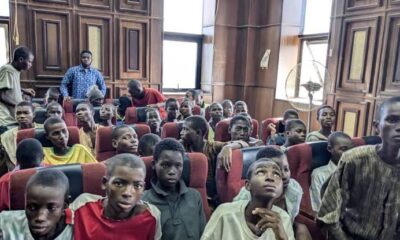Opinion
RITUALS, BLOOD AND DEATH, THE SPIRITUAL SIDE OF ASO VILLA
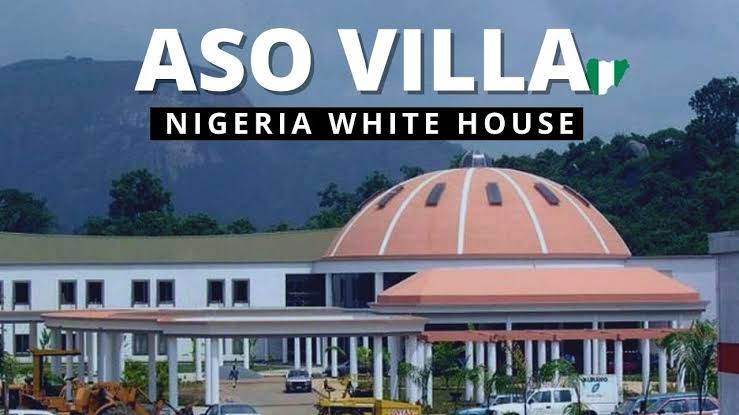
By Reuben Abati.
People tend to be alarmed when the Nigerian Presidency makes certain decisions. They don’t think the decision makes sense. Sometimes, they wonder if something has not gone wrong with the thinking process at the highest level of the country.
I have heard people insist that there is some form of witchcraft at work in the country’s seat of government. I am ordinarily not a superstitious person, but working in the Villa, I eventually became convinced that there must be something supernatural about power and closeness to it. I’ll start with a personal testimony.
I was given an apartment to live in inside the Villa. It was furnished and equipped. But when my son, Michael arrived, one of my brothers came with a pastor who was supposed to stay in the apartment. But the man refused claiming that the Villa was full of evil spirits and that there would soon be a fire accident in the apartment. He complained about too much human sacrifice around the Villa and advised that my family must never sleep overnight inside the Villa.
I thought the man was talking nonsense and he wanted the luxury of hotel accommodation. But he turned out to be right. The day I hosted family friends in that apartment and they slept overnight, there was indeed a fire accident. The guests escaped and they were so thankful. Not long after, the President’s physician living two compounds away had a fire accident in his home. He and his children could have died. He escaped with bruises. Around the Villa, while I was there, someone always died, or their relations died. I can confirm that every principal officer suffered one tragedy or the other; it was as if you needed to sacrifice something to remain on duty inside that environment.
Even some of the women became merchants of dildos because they had suffered a special kind of death in their homes (I am sorry to reveal this), and many of the men complained about something that had died below their waists too. The ones who did not have such misfortune had one ailment or the other that they had to nurse. From cancer to brain and prostate surgery and whatever, the Villa was a hospital full of agonizing patients.
I recall the example of one particular man, an asset to the Jonathan Presidency who practically ran away from the Villa. He said he needed to save his life. He was quite certain that if he continued to hang around, he would die. I can’t talk about colleagues who lost daughters and sons, brothers and uncles, mothers and fathers, and the many obituaries that we issued.
Even President Jonathan was multiply bereaved. His wife, Mama Peace was in and out of hospital at a point, undergoing many surgeries. You may have forgotten, but after her husband lost the election and he conceded victory, all her ailments vanished, all scheduled surgeries were found to be no longer necessary, and since then, she has been hale and hearty.
By the same token, all those our colleagues who used to come to work to complain about a certain death beneath their waists and who relied on videos and other instruments to entertain wives (take it, easy, boys, I don’t mean any harm, I am writing!), have all experienced a reawakening.
Everyone who went under the blade has received miraculous healing, and we are happy to be out of that place. But others were not so lucky. They died. There were days when convoys ran into ditches and lives were lost.
In Norway, our helicopter almost crashed into a mountain. That was the first time I saw the President panicking. The weather was all so hazy, and he just kept saying it would not be nice for the President of a country to die in a helicopter crash due to pilot miscalculations. The President went into prayer mode. We survived. In Kenya once, we had a bird strike. The plane had to be recalled and we were already airborne with the plane acting like it would crash.
During the 2015 election campaigns, our aircraft refused to start on more than one occasion. The aircraft just went dead. On some other occasions, we were stoned and directly targeted for evil. I don’t envy the people who work in Aso Villa, the seat of Nigeria’s Presidency.
For about six months, I couldn’t even breathe properly. For another two months, I was on crutches. But I considered myself far luckier than the others who were either nursing a terminal disease or who could not get it up.
When Presidents make mistakes, they are probably victims of a force higher than what we can imagine. Every student of Aso Villa politics would readily admit that when people get in there, they actually become something else. They act like they are under a spell. When you issue a well-crafted statement, the public accepts it wrongly.
When the President makes a speech and he truly means well, the speech is interpreted wrongly by the public. When a policy is introduced, somehow, something just goes wrong.
In our days, a lot of people used to complain that the APC people were fighting us spiritually and that there was a witchcraft dimension to the governance process in Nigeria.
But the APC folks now in power are dealing with the same demons. Since the Buhari government assumed office, it has been one mistake after another. Those mistakes don’t look normal, the same way they didn’t look normal under President Jonathan.
I am, therefore, convinced that there is an evil spell enveloping this country. We need to rescue Nigeria from the forces of darkness. Aso Villa should be converted into a spiritual museum and abandoned.
Should I become President of Nigeria tomorrow, I will build a new Presidential Villa: a Villa that will be dedicated to the all-conquering Almighty, and where powers and principalities cannot hold sway. But it is not about buildings and space, not so? It is about the people who go to the highest levels in Nigeria. I don’t quite believe in superstitions, but I am tempted to suggest that this is indeed a country in need of prayers.
We should pray before people pack their things into Aso Villa. We should ask God to guide us before we appoint ministers. We should, to put it in technocratic language, advise that the people should be very vigilant. We have all failed so far, that crucial test of vigilance. We should have a Presidential Villa where a President can afford to be human and free.
In the American White House, Presidents live like normal human beings. In Aso Villa, that is impossible. They’d have to surround themselves with cooks from their villages, bodyguards from their mother’s clans, and friends they could trust. It should be possible to be President of Nigeria without having to look behind one’s shoulders.
But we are not yet there. So, how do we run a Presidency where the man in the saddle can only drink water served by his kinsman? No. How can we possibly run a Presidency where every President proclaims faith in Nigeria, but they are better off in the company of relatives and kinsmen? No. We need as Presidents men and women who are willing to be Nigerians. No Nigerian President should be in spiritual bondage because he belongs to all of us and to nobody.
Now let me go back to the spiritual dimension.
A colleague once told me that I was the most naïve person in the place. I thought I was a bright, smart, professional doing my bit and enjoying the President’s confidence. I spelled it out. But what I got in response was that I was coming to the villa using Lux soap, but that most people around the place always bathed in the morning with blood. Goat blood. Ram blood. Whatever animal blood. I argued.
He said there were persons in the Villa walking upside down, head to the ground. I screamed. Everybody looked normal to me. But I soon began to suspect that I was in a strange environment indeed. Every position change was an opportunity for warfare.
Civil servants are very nice people; they obey orders, but they are not very nice when they fight over personal interests.
The President is most affected by the atmosphere around him. He can make wrong decisions based on the cloud of evil around him. Even when he means well and he has taken time to address all possible outcomes, he could get on the wrong side of the public.
A colleague called me one day and told me a story about how a decision had been taken in the spiritual realm about the Nigerian government. He talked about the spirit of error, and how every step taken by the administration would appear to the public like an error. He didn’t resign on that basis but his words proved prophetic. I see the same story being re-enacted. Aso Villa is in urgent need of redemption. I never slept in the apartment they gave me in that Villa for an hour.
==========
Reuben Abati was the Former Special Adviser on Media to Ex-President Goodluck Jonathan
Opinion
5G,IoT and AI to boost global GDP by 2030

By Sonny Aragba-Akpore
With Mobile technologies and services now generating around 5.8% of global Gross Domestic Product (GDP) a contribution that amounts to about $6.5 trillion of economic value, there are strong projections that by 2030, this figure will rise to almost $11 trillion, or 8.4% of GDP.
Global System of Mobile Communications Association (GSMA) says much of this will be driven by countries around the world increasingly benefiting from the improvements in productivity and efficiency brought about by the increased take-up of mobile services and digital technologies, including 5G, Internet of Things (IoT) and Artificial Intelligence (AI).
The GSMA recently introduced the 5G Connectivity Index to provide insights into 5G performance in 39 markets in order to encourage informed decision-making.
In terms of Economic Impact,
the GSMA emphasizes the economic benefits of mobile technologies and services, including 5G, projecting that they will contribute significantly to GDP growth by 2030.
“The GSMA provides specific reports and analyses on 5G in different regions, such as Sub-Saharan Africa, Asia ,Middle East among others highlighting the progress and challenges of 5G deployment in specific areas.”
In Sub Saharan Africa for instance with particular attention on Nigeria,South Africa,Egypt,Kenya and Botswana among others some measure of progress in deployment has been recorded.
The rollout of 5G has brought immense benefits across multiple industry sectors, particularly those involving internet of things (IoT) and artificial intelligence (AI) applications in which the real-time transfer of data is crucial.
More broadly, the adoption of 5G is expected to accompany increased data use across the globe, with forecasts anticipating mobile data traffic of over 300 exabytes per month by 2030, more than twice the volume consumed in 2024 according to Statista.
And with a third of global population expected to be covered by this fifth generation (5G) networks ,a technology that has defined new ways of communication by 2025 ,GSMA
says the technology has surpassed growth projections of all times.
“5G subscriptions increased by 163 million during the third quarter 2024 to total 2.1 billion. 5G subscriptions reached close to 2.3 billion by the end of 2024 accounting for more than 25 percent of all global mobile subscriptions.
“4G subscriptions continue to decline as subscribers migrate to 5G” according to GSMA.
As of the first quarter of 2024, there were nearly two billion 5G connections worldwide, with 185 million new additions. This is expected to grow to 7.7 billion by 2028.”
Statistics show that 5G is the fastest-growing mobile broadband technology, reaching 1.5 billion connections by the end of 2023.
It only took four years to reach this number, compared to 10 years for 3G and more than five years for 4G.
“5G is more than a new generation of technologies; it denotes a new era in which connectivity will become increasingly fluid and flexible.5G Networks will adapt to applications and performance will be tailored precisely to the needs of the user” GSMA submits.
By covering one-third of the world’s population , impact on the mobile industry and its customers will be profound according to GSMA.
To deepen the spread of 5G ,GSMA is working closely with the mobile operators pioneering 5G, “by engaging with governments, vertical industries including automotive, financial services, healthcare providers, transport operators, utilities and other industry sectors to develop business cases for 5G.”
And In order to accelerate the growth and spread, many operators are said to be deploying
AI technology as part of an integral part of telecoms operators’ strategic and operational plans.
“Operators are making important advancements in the deployment of AI technology, which is serving as a transformative force shaping the telecoms industry. By deploying autonomous AI-based systems, operators can enhance operational efficiency, customer satisfaction and security, while also creating new revenue opportunities”.
China, South Korea, the United Kingdom, Germany, and the United States are the leading countries with robust 5G coverage in the world.
Since the first commercial launches of the fifth generation of mobile networks in late 2018, these five countries have emerged as leaders because multiple companies in these countries have deployed networks and are selling compatible devices. Countries including Switzerland and Finland are up and comers in 5G development, though they have limited deployment.
In China there are three Companies leading in deployment.
The world’s largest 5G network was launched by the three largest Chinese network operators Oct 31, 2019, according to the state-run news agency Xinhua. These are China Mobile, China Unicom, and China Telecom which all activated their networks in less than five months after they were issued 5G licenses.
Each of the network operators offered their 5G services at $18 per month in 50 Chinese cities at the beginning of the launch.
GSMA expects 36% of China’s mobile users to be using 5G by 2025. That’s about 600 million subscribers, who would also make up 40% of the entire global 5G market by this year.
This is all despite efforts made by the United States government to hamper the progress of Chinese vendors, though those efforts may affect how Chinese companies may expand into the global market.
In South Korea,SK Telecom and Korea Telecom run as the main competitors for the South Korean 5G market.
SK Telecom acquired spectrum in the 3.5 GHz and 28 GHz frequencies to prepare for deploying 5G.
In April of 2019, the Enterprise claimed to be the first mobile carrier in the world to launch 5G services to work on 5G smartphones. SK Telecom asserted an edge over rival Verizon, as the former launched 5G services available at the same time as Samsung Galaxy S10 5G smartphone launched in South Korea. Verizon launched mobile 5G services in the U.S. before a 5G enabled smartphone was available to U.S. consumers.
SK Telecom also conducted tests with a 5G Standalone (SA) Core (a core not reliant on the 4G network) for their 5G network in cooperation with Samsung Electronics.
The world’s largest 5G network was launched by the three largest Chinese network operators Oct 31, 2019, according to the state-run news agency Xinhua. These are China Mobile, China Unicom, and China Telecom which all activated their networks in less than five months after they were issued 5G licenses. Each of the network operators offered their 5G services at $18 per month in 50 Chinese cities at the beginning of the launch.
“What we are seeing is a concerted effort by the Chinese — the operators, vendors, and government regulators — to deploy 5G as quickly as possible,” Chris Nicoll, principal analyst at ACG Research, pointed this out in a November 1, 2019 SDxCentral article.
With all of these players working together, the three network operators had collectively deployed nearly 86,000 5G base stations peaked over 130,000 by the end of 2019. The latter number breaks down into China Unicom and China telecom, with each planning to install 40,000 base stations, and the market leader China Mobile to install 50,000.This was the projection by 2019 but they have since overshot this by the beginning of 2024.
The International Telecommunication Union (ITU), says 5G coverage reached 40% of the world’s population in 2023 with an uneven coverage and distribution with developed countries having more coverage than low-income countries:
In Europe ,68% of the population is covered and
Americas had 59% of the population covered while
Asia-Pacific has 42% of the population covered as at 2023.
Arab States have 12% of the population covered.
Commonwealth Independent of States (CIS) had 8% of the population covered.
ITU figures show Africa,s coverage rose to 10 % of the population by 2023 .
The ITU also notes that 90% of the world’s population is covered by 4G, but 55% of people without access to 4G live in low-income countries because In low-income countries, 3G is often the only technology available to connect to the Internet.
The ITU develops and adopts international regulations and global standards to enable the harmonization and implementation of broadband mobile networks.
In Africa, around a dozen nations have launched services including Botswana, Kenya, Mauritius, Madagascar, Nigeria, Seychelles, South Africa, Tanzania, Togo, Zimbabwe, and Zambia but Africa is a patchwork of 54 countries.
And penetration is predicted to be slow.
By 2027, Ericsson predicts that 80 percent of phone users in Europe will have 5G service.
At the same time, 5G subscriptions in Africa, home to 1.4 billion people, May stagnate at a little over 10 percent. Why will so few people in Africa get access to 5G services?
China, South Korea, the United Kingdom, Germany, and the United States remain the leading countries with robust 5G coverage in the world.
While many countries are already providing robust services,Africa remains on the outskirts of 5G services.
The countries in Africa that have launched 5G networks, include South Africa with its roll out
In March 2022, when the Independent Communications Authority of South Africa (ICASA) sold spectrum across several bands.
In Nigeria,MTN rolled out commercial 5G services in Lagos in 2022, with other roll out in Abuja, Port Harcourt, Ibadan, Kano, Owerri, and Maiduguri among others.
MTN Congo announced that it was the first country in Central Africa to deploy 5G.
In Botswana Orange deployed 5G technology to provide new services in the Gaborone and Francistown regions.
Other countries in Africa that have launched 5G Fixed Wireless Access (FWA) services include: Angola, Kenya, Zambia, and Zimbabwe.
Analysts say “5G’s potential is growing due to its ability to deliver fiber-like speeds. However, there are still challenges in the region, such as:
Urban areas are reaching their maximum capacity whereas a large portion of the population lives in rural areas.
This explains why 5G adoption in the sub-Saharan region is currently below six percent “
Analysts report that 5G deployment in Africa faces many challenges, including Spectrum assignment,regulatory issues,infrastructure,security,financial resources among others.
“Spectrum is a limited resource that is already in use by other services, such as TV broadcasters and satellite operators. Governments need to open up frequencies and grant 5G licenses at reasonable prices. “
Infrastructure is another major challenge.
“5G networks require a large initial investment, including expensive devices, antennas, and Radio Access Network (RAN) hardware. The infrastructure needs to be fiberized to support 5G services.
Regulatory conditions also serve as challenges to deployment.
For instance “regulatory authorities may not have started the process for licensing and granting frequencies in the right portion “
“Most of the equipment and devices required for 5G deployment need to be imported.”
There are also security challenges that make
5G technology vulnerable to cyber security threats, such as tracking calls and exposing user locations.
Opinion
Right of Reply: THE PUNCH AND BUSYBODY BUSINESS

The recent declaration of a State of Emergency in Rivers State has triggered diverse commentaries from a wide range of Nigerians.
Almost everyone hailed the presidential proclamation because of the visible threat to law and order in the state at the time the action was taken. Of course, there were a few naysayers who read political meanings into an otherwise sincere and prompt intervention.
One such negative interpretation is the position taken by the Editorial Board of The Punch newspaper. In one of its editorials published on the matter, the national daily claimed that the entire crisis was caused by what it described as “the needless meddlesomeness in the governance of the state by its former governor and Tinubu’s Federal Capital Territory Minister, Nyesom Wike….” It is unfortunate that this narrative and others like it have become commonplace in the media space.
How did the Editorial Board of a reputable newspaper arrive at such a conclusion? Their claim that the Sole Administrator, Admiral Ibok Ete Ibas (rtd), has been acting a script purportedly written by the Minister of the Federal Capital Territory, Nyesom Wike, is also faulty and has no iota of truth.
They also faulted the sacking of all political appointees who served in Governor Siminalayi Fubara’s administration, insinuating that their replacements were drawn from Wike’s political camp. Again, nothing can be further from the truth.
Since his appointment as the Sole Administrator of Rivers State, Admiral Ibok Ete Ibas has been running the state with the abundant human resources available in the state and has not imported anybody from outside the state. Did the Editors of The Punch really expect him to run the administration with the politicians loyal to the suspended governor?
Do they not know that the crop of political appointees who served Fubara would have found it difficult to work with the Sole Administrator?
Certainly, they know the truth, but they have chosen to stoke the fire to generate more tensions in Rivers State.
Certain interests might have commissioned this editorial to cast aspersions on the Sole Administrator and raise doubts about his capacity to run the state.
It may also have been the handiwork of Wike’s political detractors, the man whom many politicians love to hate for no other reason than envy and jealousy.
We urge the Punch newspapers to seek a better mode of intervention in the political situation and not dwell on innuendos and unsubstantiated allegations against certain political actors in order to blackmail them.
Dr Ike Odogwu
Opinion
“Chief. Dr. Ekuogbe Akpodiete; A Philanthropist, Lawyer, and Statesman”
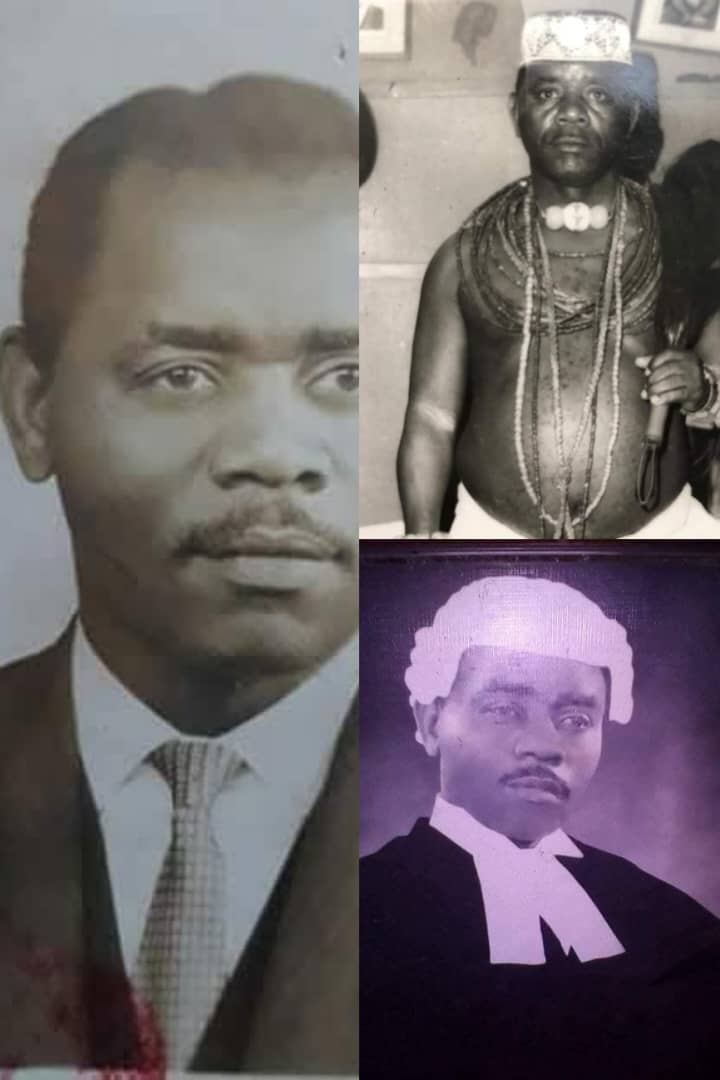
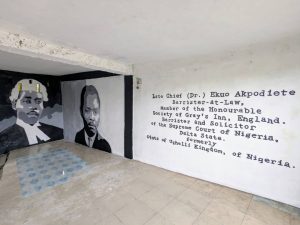
In a life of achievement, Chief Ekuogbe Akpodiete popularly called the Duke by his contemporaries in the UK was an assessment clerk, post office clerk, a court interpreter, an educationist, a business man, a political party chieftain, a Barrister and Solicitor, a Magistrate, the Otota (the Prime Minister) of Ughelli kingdom which is the highest traditional chieftaincy office that underpin the royal office of the Ovie of Ughelli Kingdom.
He was a trail blazer, a strict disciplinarian, a lover of people, and a philantropist. He saw to it that people lived in peace and happiness.
Born on the 4th of April, 1924, to parents cut from an industrious mould, Chief Ekuogbe Rowland Gregory Akpodiete took zealously to education that neither his mother Ughweriaka who was a trader, nor his father Akpodiete who was a farmer had.
He attended the Native Authority Primary School, Ughelli, and Enitona High School, Port Harcourt, for his secondary school education.
He thereafter had a brief teaching career in primary schools in Ofuoma near Ughelli, he worked as a process clerk in the then Sapele Township Department between 1950 and 1953, serving at the same time as an interpreter in the local courts.
He proceeded to the United Kingdom to seek the proverbial Golden Fleece where he worked and paid his way through, studying Law. He was admitted into the Honourable society of Gray’s Inn, England, in 1965, and shortly after, he returned home to Nigeria and attended the Nigerian Law School. He was called to the Nigerian Bar in 1966. He immediately started practice in Lagos. However, his practice in Lagos was regrettably abridged by the Nigerian Civil War, which drove him to his hometown Ughelli in 1967, where he continued to practise among his kith and kin as the first Legal Practitioner.
Chief Ekuogbe Akpodiete established himself in Ughelli. After the civil war, he served in the now defunct Mid-western State Judiciary from 1972 to 1975 as a Magistrate.
He was conferred with the chieftaincy title of Urhukperovie of Ughelli kingdom (the light of the King) by the then reigning Ovie of Ughelli, His Royal Highness Oharisi II of blessed memory in 1977.
In the quest for more knowledge, he went back to England for his Master’s degree in law (LL.M) and later a Ph.D. at the University of Warwick.
He was awarded an honourary doctorate degree (Ph.D) by Tenesse Christian University from the United States of America in 1991.
He became the Otota (the Prime Minister) of Ughelli Kingdom in 1986, an office he occupied until his demise on 9th April 1995.
Chief Ekuogbe Akpodiete was also politically involved. In the heady days of the Awolowo-led Unity Party of Nigeria, he was the party’s legal adviser in Ughelli and was on hand to assist during Chief Obafemi Awolowo’s campaign hosting in Ughelli and its environs.
In view of his love for people and entertainment, he established a popular cinema house, one of the first in Ughelli, known as REGA cinema, coined from his names, alongside an entertainment place called Unutakunu (people talk to people).
Chief Ekuogbe Akpodiete was blessed with wives and many children, grandchildren, and great grand children.
Mr. Olotu Akpodiete, PhD
Executive Director
Olotu & Ekuogbe Rowland Akpodiete foundation
-

 News4 hours ago
News4 hours agoBREAKING: Unknown gunmen reportedly storm Senator Natasha’s family residence
-
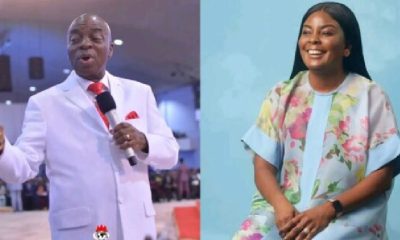
 News12 hours ago
News12 hours ago“How my father escaped assassination” – Bishop Oyedepo’s daughter
-

 News7 hours ago
News7 hours agoSnub story on removal of Rivers Sole Administrator, it’s FAKE-Chief Registrar
-

 News13 hours ago
News13 hours agoFG expresses sympathy for CBEX victims, urges a united effort to combat Ponzi schemes
-

 News6 hours ago
News6 hours agoSAD! Again, Alleged Herdsmen Attack Three Benue Communities
-
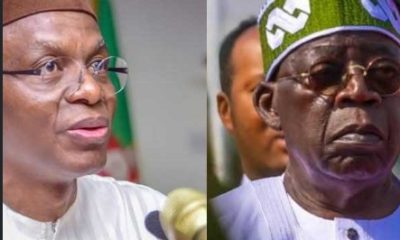
 News19 hours ago
News19 hours agoEl-Rufai labels Tinubu’s government ‘worst in Nigeria’s history’
-
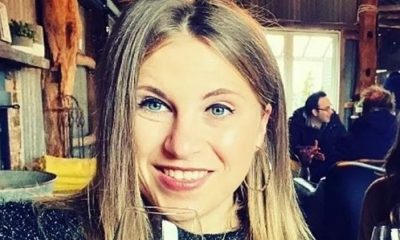
 News13 hours ago
News13 hours agoWoman tragically lost her life after attempting to flee through glass door during alleged incident of domestic violence
-
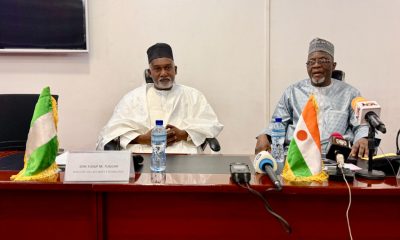
 News19 hours ago
News19 hours agoNigeria-Niger Vow to Strengthen Ties, Tackle Border Security


